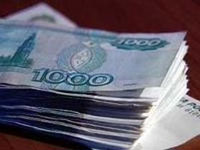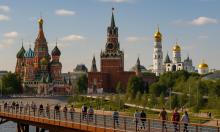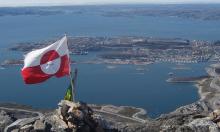Russia’s financial crisis of 1998 plotted by IMF
As it turns out, the default, which hit Russia ten years ago, was not merely a consequence of the ungifted economic policy of the Russian government during the second half of the 1990s. The devaluation of the Russian ruble occurred because of the efforts taken by the International Monetary Fund, which triggered the massive economic crisis in Russia nationwide and impoverished the majority of Russians in an instant.

“The weak position of the federal budget became the main reason of the black August in 1998. In the summer of 1998 the Finance Ministry could fund only a half of its spending with the help of taxes. The other half was funded at the expense of borrowings. When markets stopped lending money to the ministry, the federal budget was unable to function properly,” Sergei Aleksashenko, who took the position of the first deputy chairman of the Bank of Russia in 1998, said.
The government should have taken serious measures in the economic policy of the nation in 1996. Mr. Aleksashenko stated that he was surprised to hear incumbent Finance Minister of Russia , Aleksei Kudrin, saying that the crisis of 1998 was mainly caused because of IMF’s actions.
“I was very surprised to hear yesterday’s statement from Finance Minister Kudrin, who did not say a word about the budgetary policy and the weakness of Russia 's budget during the period of the crisis. Moreover, I was surprised to hear Mr. Kudrin laying the blame for the crisis on the IMF. If the minister said what he really thouhgt then it means that our government had not learned any lesson from the events that happened ten years ago,” Sergei Aleksashenko said.
Kudrin laid the blame for the crisis on the Russian government too. The minister said that the crisis had been predetermined with low gold and forex reserves. However, the minister said that the International Monetary Fund was also guilty of the financial crisis in Russia in 1998, RIA Novosti reports.
If the IMF had increased the Russian reserves by ten or 20 billion dollars within the framework of its coordinated aid program, the financial collapse would not have happened. As a result, the Russian government declared default on August 17, 1998 being unable to abide by its obligations.
The current economic situation in Russia has something in common with that of 1998. It is worthy of note that oil prices have dropped down to $112.5 per barrel from over $150. Russia ’s debt has undergone a significant change, though. Russia as a state appeared to be the major debtor in 1998. The corporate debt was negligibly small. Nowadays, Russia ’s foreign debt makes up $40 billion, whereas Russian companies owe some $400 billion in total.
The former chairman of the Moscow department of the International Monetary Fund, Martin Gilman, stated that every member of the Russian government, who was involved in the decision-making process ten years ago, played a big role in the crisis.
The economic crisis of 1998 became a result of certain decisions, the official believes, although bad luck was also involved. Mr. Gilman said that even world’s biggest men of genius would have faced difficulties if they had attempted to solve Russia ’s problems in the 1990s.
The official described the default of 1998 as the price which Russia had to pay to evolve from its old system to the new globalized economy.
“It was the price which Russia paid for moving forward,” the former chairman of the IMF in Moscow said.
Subscribe to Pravda.Ru Telegram channel, Facebook, RSS!




